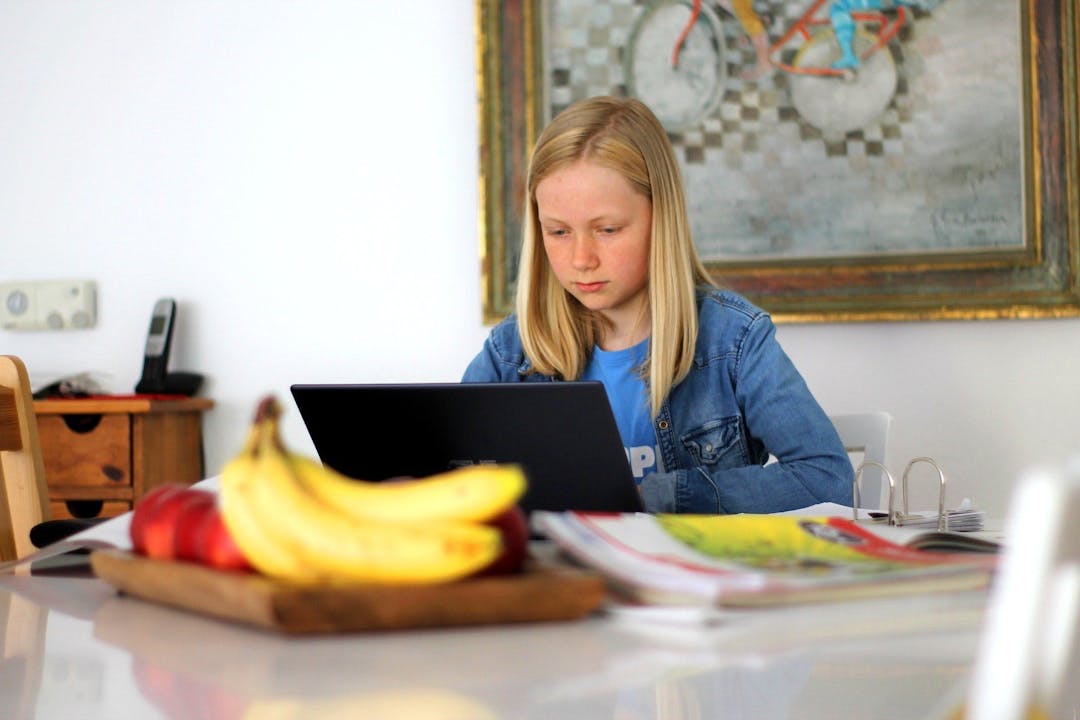‘Tis the Season: The Science of Saying Thanks
Needless to say, these last few years have been hard for many employees. The global challenges created by the COVID-19 pandemic have forced workers to adapt to new conditions, and take on extra responsibilities during the crisis. The holidays are usually a time for employers to show their appreciation for their employees’ efforts—but this year, the usual options aren’t on the table. Christmas parties will be virtual, and year-end vacations will be more isolated as fewer families are able to travel to see loved ones.
Yet workers are in need of thanks—now more than ever. Recent research shows that 83% of organizations suffer from a recognition deficiency, with 87% of recognition programs based on tenure, not performance.1
In light of this year’s hardships, there are significant benefits to expressing gratitude, and behavioral science may inform how we do so in this uniquely challenging time.
Behavioral Science, Democratized
We make 35,000 decisions each day, often in environments that aren’t conducive to making sound choices.
At TDL, we work with organizations in the public and private sectors—from new startups, to governments, to established players like the Gates Foundation—to debias decision-making and create better outcomes for everyone.
The history of gratitude
Robert Emmons, a psychology professor at UC Davis and an expert on gratitude, states that it is the “affirmation of goodness. We affirm that there are good things in the world, gifts and benefits we’ve received.”2
The historical roots of gratitude are rooted in history. The word “thank” derives from the Latin word tongēre, meaning “I will remember what you have done for me.”3
The thank-you note goes back to Ancient Egypt and Rome. In Egypt, a common practice was composing letters of thanks to the deceased for what they had done during their lives. The Vindolanda tablets, a collection of handwritten documents from Roman Britain, show letters of thanks from soldiers hoping to get promotions.4
The benefits of gratitude
It’s no accident that humans have been expressing gratitude for such a long time: psychological research over decades has turned up many positive benefits of being grateful. Those who express gratitude are more satisfied both personally and at work.5
While there are benefits of gratitude for personal well-being, research also demonstrates benefits that expressing thanks has for others. In a job interview setting, researchers found that people perceived interviewees to be more friendly and informal when they expressed more gratitude.6
Similarly, leaders who express gratitude are seen to be less selfish, and their followers had higher commitment to their organization outside of their required tasks.7 Another study found leaders to be perceived as more benevolent and to have more integrity when they expressed thankfulness.8 Among teams, teammates that expressed gratitude were more sensitive to each other and more receptive to negative feedback.9,10
Gratitude and greatness
Expressions of gratitude don’t just improve team dynamics; they can also yield better results. In one study, researchers tested the effects of gratitude on team performance. 43 NICU teams, each consisting of two nurses and two physicians, participated in an acute care simulation. Afterwards, the groups received an expression of gratitude from mothers, other physicians, or both.
The researchers found that the mothers’ gratitude most positively improved team performance, and was linked to increased information sharing between team members.11 These results show that those who receive service (e.g. patients, customers) can help organizational teams work better together simply through showing gratitude.
Seeing is believing
Even just witnessing an act of gratitude can boost positive behaviors. In one study, researchers asked participants to read a movie review draft and underline eye-catching paragraphs. Before doing so, however, they were given an example review that had supposedly been marked up by a previous participant. In the example review, in addition to underlining passages, the past participant had also corrected typos. For some participants, these corrections were accompanied by a note of gratitude from the reviewer, thanking the participant for catching their mistakes.
The researchers found that those who had read the example with the thank-you note included were more likely to help correct errors, and more likely to say they wanted to become friends with the reviewer. Interestingly, these participants were also more interested in being friends with the person receiving the gratitude.12
Clearly, the benefit of expressing gratitude has personal and prosocial benefits. The benefits are so great that the Great Place to Work Institute, which identifies the best companies to work for and helps companies improve their corporate cultures, lists “showing appreciation and recognition” as one of their nine criteria for making it to the Fortune 100 “Best Places to Work” list.1
Why gratitude makes us feel good
A major reason why gratitude carries these benefits is due to the way we evolved as a species. The theory of reciprocal altruism, introduced by Robert Trivers in 1971, states that gratitude helps us regulate our response to altruistic acts by others and motivates us also to respond altruistically.
Trivers suggests that gratitude, like many other biases and social norms, emerged through natural selection. In the ancient past, individuals had a much higher chance of survival if they could depend on others to help them. When we feel gratitude after others have helped us, it inspires us to return the favor, which in turn motivates them to lend us a hand again in the future. Many of our primate relatives are known to show reciprocal altrusim as well: chimpanzees are more likely to help other chimps who have given them assistance in the past.13
The benefits of gratitude can even be seen at the neurochemical level. Neuroscience research suggests that expressing gratitude increases dopamine and serotonin, and activates the ventromedial prefrontal cortex. After a while, our brains start to crave the experience of giving and receiving thanks.1,14,15
Are there better ways to say “thanks”?
Research shows the positive benefits of expressing gratitude on follower behavior, team cooperation, and personal well-being. But what is the best way to go about doing so? Science has some interesting insights into the best way to say thanks.
Thank individuals for their responsiveness
A recent study from the University of Toronto found respondents had a more positive response when they were thanked for their responsiveness (e.g., “I don’t know what I would do if I didn’t have you there today”) as opposed to the costs they incurred (e.g., “Thank you for sacrificing time for me”). Research shows that acknowledging the cost puts individuals in “exchange mode” and emphasizes an impending reciprocation instead of making the beneficiary feel good.16,17
Don’t overthink it
Researchers from the University of Texas ran a study on writing thank-you notes, and found an imbalance between how writers believed their messages would be received and how they actually were received. Recipients found the letters both warmer and more articulate than the writers predicted.18
Allow others to express gratitude
Given the personal benefits of expressing gratitude, take time to let your employees do so themselves. This might entail giving employees paid time off to volunteer, or letting them have a say in corporate giving initiatives. One study by the Benevity, a software company based in Calgary, Alberta, found that there was a 57% drop in turnover among employees who were engaging in both volunteering their time & donating money.19
Think outside the box in saying “thanks”
While typical corporate holiday events aren’t likely to happen this year, there are still ways to say thanks. For instance, Moneypenny, an answering service company based in the United Kingdom, is sending each of its employees a turkey (or vegetarian option) to celebrate the holidays this year.20
Gratitude is literally one of the few things that can measurably change peoples’ lives.”
- Robert Emmons21
While saying “thank you” might be an etched-in mannerism, by doing so, we improve our well-being and team performance at work. During a particularly challenging year, organizations may have to use unconventional methods this holiday season to ensure their employees feel recognized. No matter the method, the effort of recognition has scientifically proven benefits and is needed now more than ever before.
References
- Burton, L. (2016, October). The Neuroscience of Gratitude. Wharton Health Care Management Alumni Association. https://www.whartonhealthcare.org/the_neuroscience_of_gratitude
- Greater Good Magazine. (2020). Gratitude Definition | What Is Gratitude. https://greatergood.berkeley.edu/topic/gratitude/definition
- access2interpreters. (2019, February 22). History of Thank You | Interpretation Company | Access 2 Interpreters. https://www.access2interpreters.com/the-history-of-thank-you-around-the-world/
- Dishman, L. (2019, October 8). The history and power of the simple thank-you note. https://www.fastcompany.com/90412019/the-history-and-power-of-the-simple-thank-you-note
- Waters, L. (2012). Predicting Job Satisfaction: Contributions of Individual Gratitude and Institutionalized Gratitude. Psychology, 3, 1174-1176. doi: 10.4236/psych.2012.312A173.
- Percival, N. M., & Pulford, B. D. (2020). Do say “thank you”: Verbal expressions of politeness and gratitude influence interpersonal perceptions. The Journal of General Psychology, 147(3), 228–243. https://doi.org/10.1080/00221309.2019.1690970
- Coates, D., & Howe, D. (2015). Combatting staff burnout in mental health: Key managerial and leadership tasks that are fundamental to staff wellbeing and retention. Asia Pacific Journal of Health Management, 10(2), 24.
- Percival, N. M., & Pulford, B. D. (2020). Do say “thank you”: Verbal expressions of politeness and gratitude influence interpersonal perceptions. The Journal of General Psychology, 147(3), 228–243. https://doi.org/10.1080/00221309.2019.1690970
- Vozza, S. (2016, November 24). The Science Of Gratitude And Why It’s Important In Your Workplace. https://www.fastcompany.com/3065948/the-science-of-gratitude-and-why-its-important-in-your-workplace
- Pillay, N., Park, G., Kim, Y. K., & Lee, S. (2020). Thanks for your ideas: Gratitude and team creativity. Organizational Behavior and Human Decision Processes, 156, 69–81. https://doi.org/10.1016/j.obhdp.2019.11.005
- Riskin, A., Bamberger, P., Erez, A., Riskin-Guez, K., Riskin, Y., Sela, R., Foulk, T., Cooper, B., Ziv, A., Pessach-Gelblum, L., & Bamberger, E. (2019). Expressions of Gratitude and Medical Team Performance. Pediatrics, 143(4). https://doi.org/10.1542/peds.2018-2043
- Suttie, J. (2019, December 20). The Ripple Effects of a Thank You. https://greatergood.berkeley.edu/article/item/the_ripple_effects_of_a_thank_you
- Suchak, M. (2017, February 1). The Evolution of Gratitude. Greater Good. https://greatergood.berkeley.edu/article/item/the_evolution_of_gratitude
- Lechner, T. (2019, November 26). The Neuroscience Behind Gratitude: How Does Cultivating Appreciation Affect Your Brain? Chopra. https://chopra.com/articles/the-neuroscience-behind-gratitude-how-does-cultivating-appreciation-affect-your-brain
- Zahn, R., Moll, J., Paiva, M., Garrido, G., Krueger, F., Huey, E. D., & Grafman, J. (2009). The Neural Basis of Human Social Values: Evidence from Functional MRI. Cerebral Cortex (New York, NY), 19(2), 276–283. https://doi.org/10.1093/cercor/bhn080
- Park, Y., Visserman, M. L., Sisson, N. M., Le, B. M., Stellar, J. E., & Impett, E. A. (2020). How can I thank you? Highlighting the benefactor’s responsiveness or costs when expressing gratitude. Journal of Social and Personal Relationships, 0265407520966049. https://doi.org/10.1177/0265407520966049
- Ludden, D. (2020, December 7). How to Say “Thank You” for Maximum Effect. Psychology Today. https://www.psychologytoday.com/blog/talking-apes/202012/how-say-thank-you-maximum-effect
- Ducharme, J. (2018, August 31). Why You Should Write More Thank You Notes | Time. https://time.com/5383208/thank-you-notes-gratitude/
- Benevity Labs. (2020). Benevity Goodness Engagement Study.
- The Economist. (2020, December 7). How to party like it’s 2020. https://applied.economist.com/articles/how-to-party-like-its-2020
- Salzgeber, N. (2016, December 7). Thanks! By Robert Emmons (Book Summary). NJlifehacks. https://www.njlifehacks.com/thanks-robert-emmons-book-summary/
About the Author
Kaylee Somerville
Kaylee is a research and teaching assistant at the University of Calgary in the areas of finance, entrepreneurship, and workplace harassment. Holding international experience in events, marketing, and consulting, Kaylee hopes to use behavioral research to help individuals at work. She is particularly interested in the topics of gender, leadership, and productivity. Kaylee completed her Bachelor of Commerce degree from the Haskayne School of Business at the University of Calgary.





